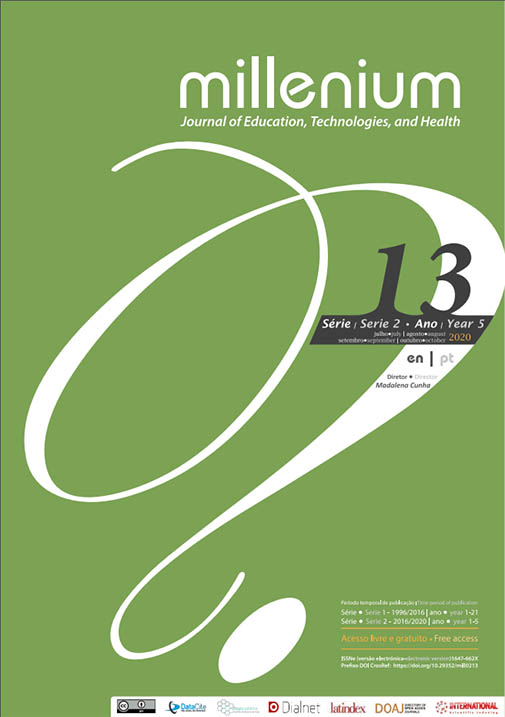Blind adolescents
perceptions about their sexuality
DOI:
https://doi.org/10.29352/mill0213.06.00304Keywords:
sexuality, adolescence, visually impaired, nursingAbstract
Introduction: Due to the transformations that occurred in adolescence, the vagueness that accompanies it and the visual impairment, justifies a study on the experience of sexuality in this population cluster.
Objectives: To identify the perceptions of visually impaired adolescents about their sexuality.
Methods: Exploratory qualitative study. Five (5) adolescents from a Pedagogical Support Center in Brazil were interviewed. The questions sought to obtain knowledge and the causes of their visual impairment, family composition and guidance, affective-sexual experience, level of knowledge about issues related to sexuality, among them, about contraceptive methods and sexually transmitted diseases.
Results: The participants denote lack of knowledge about contraceptive methods and STDs, however, it appears that they only have superficial information.
Conclusions: The results showed that visually impaired adolescents have the same characteristics of sexual development as other girls, although they have their own characteristics. It is considered that in order to generate a health promotion culture, it is essential that knowledge is made accessible to this population group.
Downloads
References
Bardin, L. (1979). Análise de conteúdo. Lisboa: Edições 70.
Brasil, Ministério da Saúde. (1997). Diretrizes e normas regulamentadoras de pesquisa envolvendo seres humanos. Brasília (DF): Ministério da Saúde.
Brêtas, J. R. S., & Silva, C. V. (2002). Interesse de escolares e adolescentes sobre corpo e sexualidade. Revista Brasileira de Enfermagem, 55(5), 528-534.
Bruns, M. A. T. (2000). Deficiência visual e educação sexual: A trajetória dos preconceitos: Ontem e hoje. Revista Benjamim Constant, 6(17), 24-30.
Bruns, M. A. T., & Salzedas, P. L. (1999). Adolescer: A vivência de portadores de deficiência visual. Revista Benjamin Constant, 5(12), 6-16.
Gauthier, J. H. M., Cabral, I. E., & Santos, I. (1998). Pesquisa em enfermagem: Novas metodologias aplicadas. Rio de Janeiro: Guanabara Koogan.
Pagliuca, L. M. F. (1999). Métodos contraceptivos de barreira e DIU: Tecnologia educativa para deficientes visuais. Revista Brasileira de Enfermagem, 52(3), 413-422.
Pagliuca, L. M. F., & Rodrigues, M. L. (1999). Métodos contraceptivos comportamentais: Tecnologia educativa para deficientes visuais. Revista Gaúcha de Enfermagem, 19(2), 147-153.
Polit, D. F., Beck, C. T., & Hungler, B. P. (2004). Fundamentos de pesquisa em enfermagem: Métodos, avaliação e utilização (5ª ed.). Porto Alegre: Artmed.
Vash, C. L. (1991). Enfrentando a deficiência: A manifestação, a psicologia, a reabilitação. São Paulo: EPU.
Downloads
Published
How to Cite
Issue
Section
License

This work is licensed under a Creative Commons Attribution 4.0 International License.
Authors who submit proposals for this journal agree to the following terms:
a) Articles are published under the Licença Creative Commons (CC BY 4.0), in full open-access, without any cost or fees of any kind to the author or the reader;
b) The authors retain copyright and grant the journal right of first publication, allowing the free sharing of work, provided it is correctly attributed the authorship and initial publication in this journal;
c) The authors are permitted to take on additional contracts separately for non-exclusive distribution of the version of the work published in this journal (eg, post it to an institutional repository or as a book), with an acknowledgment of its initial publication in this journal;
d) Authors are permitted and encouraged to publish and distribute their work online (eg, in institutional repositories or on their website) as it can lead to productive exchanges, as well as increase the impact and citation of published work
Documents required for submission
Article template (Editable format)





